The printed version of this eBook is the Essential Doctrine Made Easy pamphlet, ISBN-13: 9781596361430
Norman L. Geisler , M.A., Th.B., Ph.D., is the founder and Dean of Southern Evangelical Seminary and the Veritas Graduate School of Apologetics. He is author of numerous books on apologetics and theology, many of which are considered standard texts in Christian colleges throughout the world.
Special thanks to Shawn Vander Lugt and William Brent Ashby.
All Scripture quotations, unless otherwise indicated, are taken from the Holy Bible, New International Version. NIV . Copyright 1973, 1978, 1984 by International Bible Society. Used by permission of Zondervan. All rights reserved.
It is illegal to photocopy, transmit electronically, post on the internet, or reproduce this pamphlet in whole or in part in any form.
2007 Norman L. Geisler
Published by Rose Publishing, LLC
PO Box 3473
Peabody, Massachusetts 01961-3473 U.S.A.
Email: info@hendricksonrose.com
www.hendricksonrose.com
All rights reserved.
Contents
Essential Doctrine Made Easy
This handy eBook:
- Can be read in 30 minutes or less, and outlines and explains 14 key Christian beliefs.
- Compares how Mormons, Jehovahs Witnesses, Scientology and Christian Science beliefs differ with Christianity.
- Gives Scripture references for each belief.
- Includes a glossary of 24 Christian terms.
Resources
Bettenson, Henry and Chris Maunder, eds. Documents of the Christian Church . 3rd Edition. New York: Oxford University Press, 1999.
Enns, Paul. Moody Handbook of Theology . Chicago: Moody, 1989.
Geisler, Norman L. Systematic Theology , Vol. 1. Prolegomena and Bibliology . Minneapolis: Bethany House Pub., 2002.
________. Systematic Theology , Vol. 2. God and Creation . Minneapolis: Bethany House Pub., 2003.
________. Systematic Theology , Vol. 3. Sin and Salvation . Minneapolis: Bethany House Pub., 2004.
________. Systematic Theology , Vol. 4. Church and Last Things . Minneapolis: Bethany House Pub., 2005.
House, H. Wayne. Charts of Christian Theology & Doctrine . Grand Rapids: Zondervan, 1992.
Ryrie, Charles. Survey of Bible Doctrine . Chicago: Moody, 1989.
Schaff, Philip. Creeds of Christendom . Vol. 2. Greek and Latin Creeds . New York: Harper & Brothers, 1931.
Glossary
Ascension Being taken up; Christ was taken up by God into heaven after the Resurrection.
Atonement To cover, cancel, or forgive sins.
Creed Summary of beliefs or faith statements held in common by a group.
Deity Godhood; having the nature of God.
Depravity Humans natural bent toward sin (see Genesis 3; 1 Corinthians 15:22; Romans 5:12-15).
Doctrine Formal teaching.
Eternal Forever; outside of time and space.
Grace Undeserved favor; Gods mercy.
High Priest One who represents the people of God to God. In ancient Israel, there was only one high priest chosen to represent the entire nation before God in worship. (See Mediator .)
Historical-grammatical method Method of interpreting Scripture which centers on the historical context and the grammatical interpretation of a text.
Incarnation Jesus assumption of human nature; His becoming a human being in a specific time and place.
Inspiration (of Scripture) Supernatural influence that gives Gods authority to a human writing.
Intercession Prayer or intervention on behalf of another.
Mediator Go-between; one who intervenes between two parties to bring reconciliation.
Orthodoxy Right belief as opposed to heresy (wrong belief).
Prophecy To accurately predict an event or situation.
Rebellion the condition of fallen man (depravity); a willful transgression of a known law of God. It is what separates mankind from God and reaps the result of guilt and eternal condemnation. The wages of sin is death...(Romans 6:23).
Redemption To buy back or redeem.
Resurrection Gods action in bringing a dead body back to life.
Righteousness Being in right relationship with God and man.
Salvation Gods work that delivers us from the consequences of our sin.
Sin To miss the mark; failing. A deviation or transgression of Gods will.
Soteriology Branch of theology dealing with the doctrine of salvation.
Trinity or Tri-unity Tri = three; unity = one. Describes the nature of the one God who is also three Persons.
What Do Christians Believe?
W hat are the key doctrines of the Christian faith? The core teachings of the Bible have defined Christianity for 2,000 years. Virtually all Christians who seek to have a faith that is biblical hold to some form of these basic doctrines. Christians may not always agree on how they work out the details of their faith, but they should agree on the essential doctrines, these core truths.
In essentials, unity; in non-essentials, liberty, and in all things, charity.
We can identify the essential doctrines of the Christian faith by looking at the core truth of the Gospel, which is the salvation of humanity through the life, death, and resurrection of Jesus Christ. Salvation, as God has revealed to us through his Holy Scriptures, is defined as forgiveness of sins and everlasting life with God by confessing that Jesus is Lord and believing that God raised Jesus from the dead (Romans 10:9). By examining the Gospel message, we can identify 14 doctrines that are necessary for salvation to be possible.
Rupertus Meldenius ( AD 1627)
What Are the Essential Doctrines?
T he essential doctrines of Christianity have to do with
 who God is,
who God is,
 who Jesus Christ is,
who Jesus Christ is,
 Gods love for people, and his desire to save them.
Gods love for people, and his desire to save them.
Below are the 14 essential salvation doctrines that have to be true in order for anyone to know God and be saved:
1.) Gods Unity
2.) Gods Tri-unity
3.) Human Depravity
4.) Christs Virgin Birth
5.) Christs Sinlessness
6.) Christs Deity
7.) Christs Humanity
8.) The Necessity of Gods Grace
9.) The Necessity of Faith
10.) Christs Atoning Death
11.) Christs Bodily Resurrection
12.) Christs Bodily Ascension
13.) Christs Intercession
14.) Christs Second Coming
In addition, two more essentials define how we know about salvation:
15.) Inspiration of Scripture
16.) Method of Interpretation
The Essential Doctrines in the Creeds
T he essential doctrines are reflected in the Churchs ancient statements of faith called creeds. Creeds are short summaries of what the Bible teaches.
The Apostles Creed
The Apostles Creed was one of the earliest statements of faith crafted by Christian leaders to clarify basic beliefs. All 14 essential salvation doctrines are contained in it. Each doctrine is indicated by bracketed numbers: [9] = Essential Doctrine #9.
I believe [9] in God [1], the Father Almighty, the Creator of heaven and earth, and in Jesus Christ, his only Son, our Lord [6]: Who was conceived of the Holy Spirit [2], born of the Virgin Mary [4, 5], suffered [10] under Pontius Pilate, was crucified, died [7], and was buried. (He descended into hell.) The third day he arose again from the dead [11]. He ascended into heaven [12] and sits at the right hand of God the Father [13] Almighty, from whence he shall come to judge the living and the dead [14]. I believe in the Holy Spirit, the holy catholic [universal] church, the communion of saints, the forgiveness [8] of sins [3], the resurrection of the flesh, and life everlasting [14]. Amen.
Next page
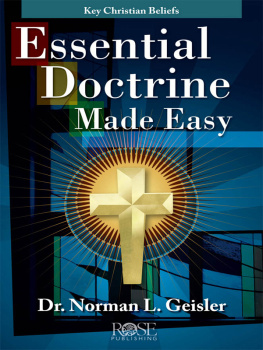


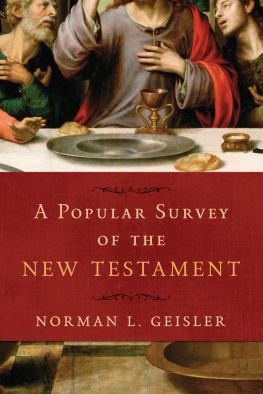

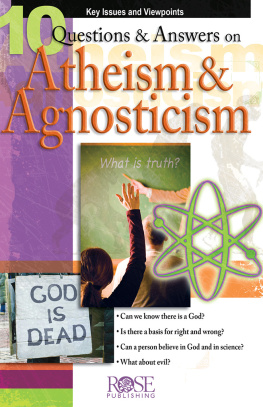
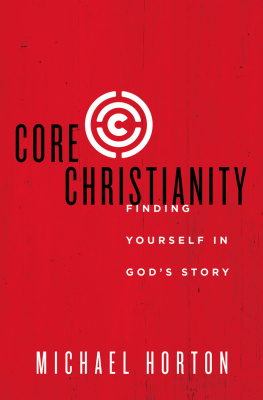
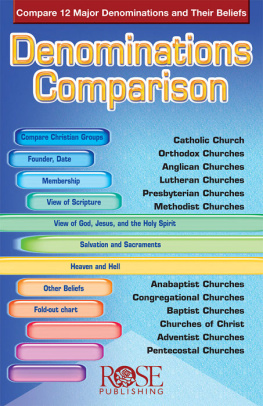
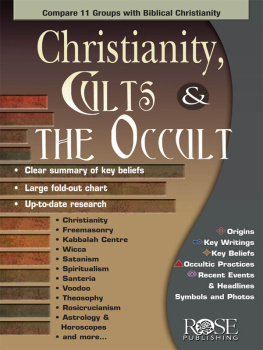
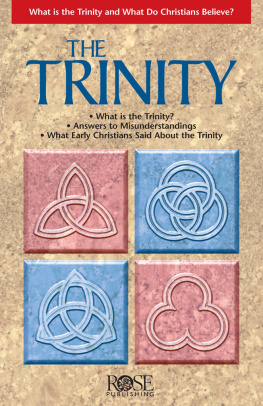
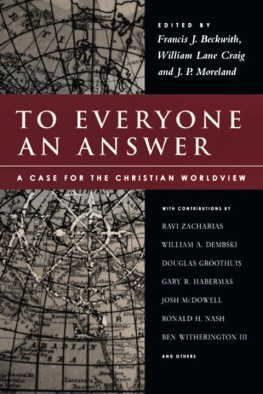
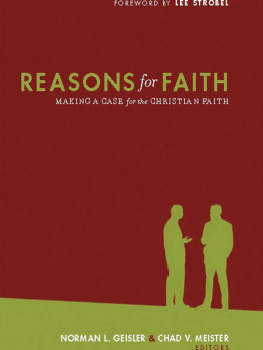


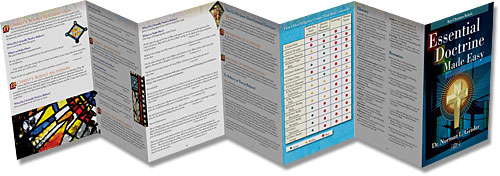

 who God is,
who God is,